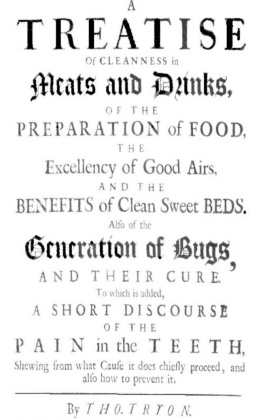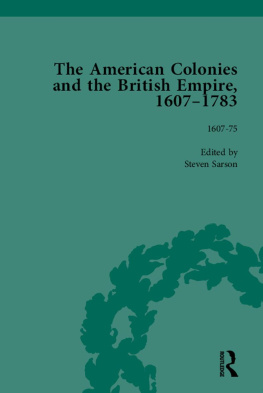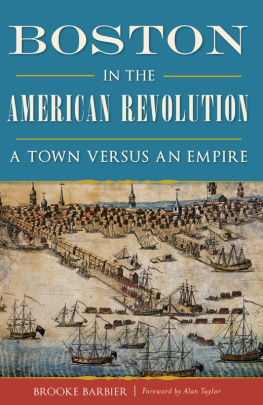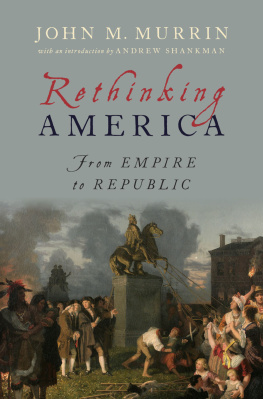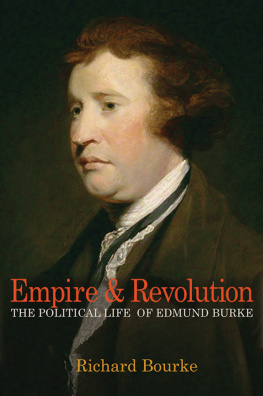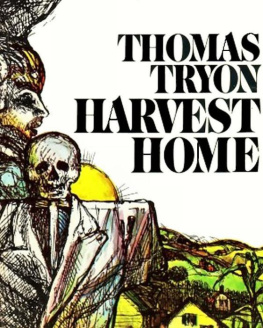Paul David Nelson - William Tryon and the Course of Empire: A Life in British Imperial Service
Here you can read online Paul David Nelson - William Tryon and the Course of Empire: A Life in British Imperial Service full text of the book (entire story) in english for free. Download pdf and epub, get meaning, cover and reviews about this ebook. year: 2017, publisher: UNC Press Books, genre: Detective and thriller. Description of the work, (preface) as well as reviews are available. Best literature library LitArk.com created for fans of good reading and offers a wide selection of genres:
Romance novel
Science fiction
Adventure
Detective
Science
History
Home and family
Prose
Art
Politics
Computer
Non-fiction
Religion
Business
Children
Humor
Choose a favorite category and find really read worthwhile books. Enjoy immersion in the world of imagination, feel the emotions of the characters or learn something new for yourself, make an fascinating discovery.

- Book:William Tryon and the Course of Empire: A Life in British Imperial Service
- Author:
- Publisher:UNC Press Books
- Genre:
- Year:2017
- Rating:4 / 5
- Favourites:Add to favourites
- Your mark:
William Tryon and the Course of Empire: A Life in British Imperial Service: summary, description and annotation
We offer to read an annotation, description, summary or preface (depends on what the author of the book "William Tryon and the Course of Empire: A Life in British Imperial Service" wrote himself). If you haven't found the necessary information about the book — write in the comments, we will try to find it.
Paul Nelson argues that Tryon was a talented colonial administrator and a successful, even popular, governor largely because he understood American thinking on such basic constitutional issues as taxation, finance, and trade policy. British home authorities failed to follow Tryons sage counsel regarding the governance of the colonies, advice that might have forestalled the Revolution. In particular, Tryon, like Edmund Burke and others in Parliament, could not convince British ministers that Americans would never accept internal taxes imposed upon them by London.
Once the war broke out and Tryons role changed from governing to leading Loyalist American troops, he was an advocate of harsh, retributive warfare against his former charges. Nelson follows Tryons military career, especially his debates with colleagues such as Sir Henry Clinton on the wisdom of hard-line versus conciliatory approach to the fighting. And after the war, Nelson shows, Tryons connections with those unfortunate Americans who came out on the losing side of the great imperial struggle retained an important place in his life.
An exciting drama in its own right, Tryons story also serves to illuminate a number of issues important to historians of the Revolutionary War. Played out on two continents and in two important American colonies, amid the stirring events that resulted in the formation of the United States of America, Tryons life is significant for understanding many aspects of politics and society in the Anglo-American world of the eighteenth century.
Originally published in 1990.
A UNC Press Enduring Edition -- UNC Press Enduring Editions use the latest in digital technology to make available again books from our distinguished backlist that were previously out of print. These editions are published unaltered from the original, and are presented in affordable paperback formats, bringing readers both historical and cultural value.
Paul David Nelson: author's other books
Who wrote William Tryon and the Course of Empire: A Life in British Imperial Service? Find out the surname, the name of the author of the book and a list of all author's works by series.

